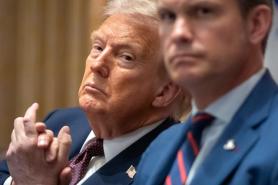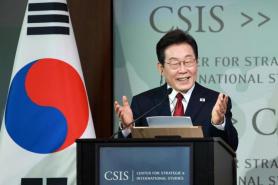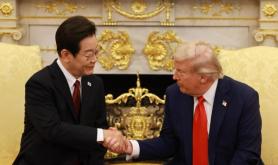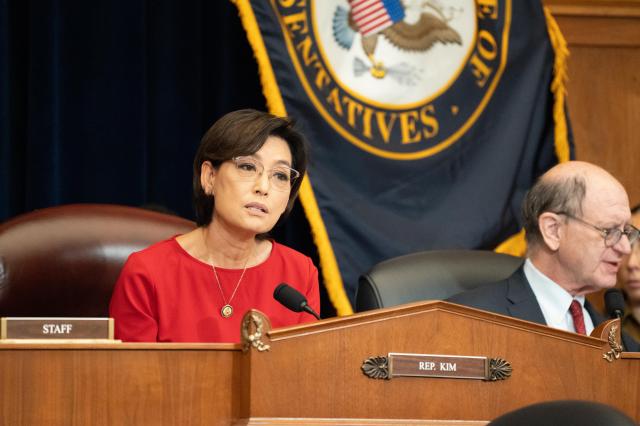
SEOUL, September 08 (AJP) - Two weeks after South Korean President Lee Jae Myung and the United States President Donald Trump held their first summit, U.S. lawmakers are offering mixed assessments, praising its reaffirmation of ties but also pointing to unresolved challenges such as defense costs and trade issues.
Rep. Young Kim, a Republican from California and one of the first Korean American women elected to Congress, said the summit served as a "necessary reaffirmation" of the U.S.-South Korea alliance but fell short on substance.
The public portion of the meeting "felt more like formalities between the two leaders than a substantive discussion on trade, defense cost-sharing, and broader security coordination issues," Kim told Aju Press in a written interview last week.
"My key takeaway is that there is too much at stake in the U.S.-ROK [South Korea] relationship, and it is in our mutual interest to strengthen our ties," she said. "I hope that President Lee [Jae Myung] proves through his actions – not just rhetoric – that he prioritizes the partnership as the foundation of security and prosperity on the Korean Peninsula. Likewise, it is important for our side to treat South Korea as a valued and respected ally."
The lead-up to the White House talks was hardly smooth. Hours before the Oval Office meeting on August 25, President Donald Trump posted on Truth Social, suggesting political unrest in South Korea, which unsettled Lee's delegation. When reporters entered, Trump brought up alleged "church raids," which Lee countered by explaining that an independent prosecutor was investigating former President Yoon Suk Yeol's botched martial law debacle from the previous year, a matter unrelated to U.S. facilities. Trump quickly dismissed it as a misunderstanding.
Later in the meeting, the tone shifted. Lee praised Trump as a "peace-maker" and cast himself as a "pace-maker" in inter-Korean relations, a remark widely interpreted as a gesture toward Trump's self-styled image as a dealmaker and his well-known interest in a Nobel Peace Prize.
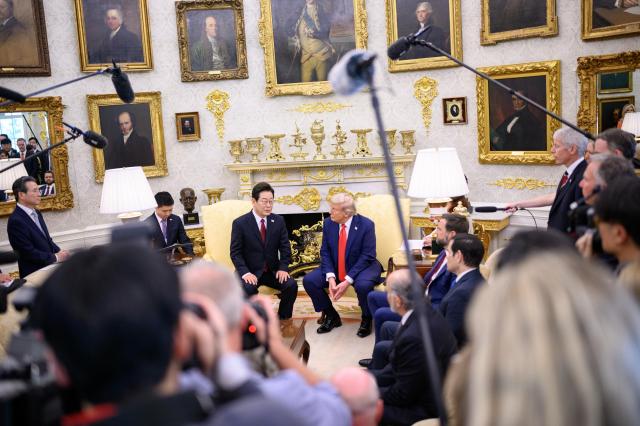
Rep. Kim, however, emphasized that the backdrop to any future U.S.-North Korea talks has grown far more dangerous. "We are facing a very different, more dangerous North Korea than the one we dealt with during the first Trump administration," she said, citing its defense treaty with Russia, a more sophisticated nuclear program and a recent statement by North Korean leader Kim Jong-un's sister demanding recognition of the North as a nuclear state while rejecting denuclearization.
The geopolitical divide was underscored about a week later in Beijing, when Kim Jong-un stood alongside Chinese President Xi Jinping and Russian President Vladimir Putin at China's "Victory Day" parade marking the 80th anniversary of the end of World War II. It was the first such joint appearance in 66 years.
With Kim Jong-un attending the parade with other members of "like-minded authoritarian regimes," the American congresswoman said, "it raises serious questions about his willingness to negotiate with the United States.”
Even if Trump and North Korean leader were to meet again, Rep. Kim doubted that it would yield meaningful progress without tougher conditions. "To avoid a repeat of what we saw in 2019, the U.S. needs to come to terms with North Korea's nuclear reality and the threat it poses today," she said.
She reiterated her opposition to South Korea's Sunshine Policy, a past initiative of engagement and aid toward Pyongyang, and to unilateral efforts to declare an end to the Korean War without "tangible commitments from North Korea to denuclearize, cease all illicit activities to evade sanctions, and improve the dire human rights situation."
Although the two leaders exchanged warm words, Lee and Trump avoided some of the most sensitive alliance issues, including defense cost-sharing, U.S. troop levels and trade disputes. Observers say those matters will inevitably resurface.
"President Trump has long made clear that he wanted South Korea to pay more for U.S. troops," Kim said, while voicing confidence that the alliance would remain "a beacon of stability in the region."
She added that South Korea's "long history of hosting of U.S. forces in Pyeongtaek and its advanced shipbuilding and defense production capabilities" should enable the allies to reach a "mutually beneficial deal," while emphasizing Congress's "oversight role" in ensuring agreements reflect "America's long-term interests and strengthen deterrence."
Kim said expanding Japan, South Korea and the U.S. cooperation is vital to countering Chinese aggression and deterring North Korea. “South Korea is not only a close ally but also an economic and technological powerhouse, particularly in shipbuilding, where it has made major new investments" in the U.S., she said. “Simply boosting U.S. production isn’t enough — we need to work hand in hand with trusted allies like South Korea to build resilient supply chains that strengthen both our economies and our security.”
The first summit, initially planned for 30 minutes, stretched to more than 140 minutes but produced little in the way of concrete outcomes. With both leaders expected to attend the U.N. General Assembly in New York later this month, whether a second encounter can move beyond symbolism and address unresolved issues such as defense costs, U.S. troop levels and tariffs will be closely watched in both capitals.
Copyright ⓒ Aju Press All rights reserved.


